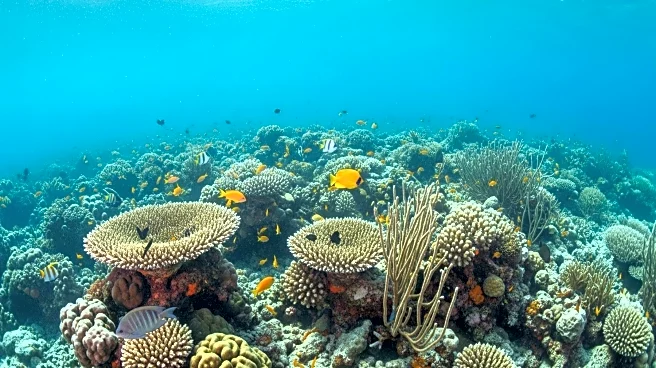What's Happening?
Researchers from the University of Hawai‘i are expressing concerns about the potential impacts of deep-sea mining on marine ecosystems in the Pacific Ocean. A recent study highlights the overlap between the habitats of sharks and rays and areas targeted for commercial seabed mining. The study, discussed on Hawaii Public Radio's 'The Conversation,' features insights from Aaron Judah, a graduate student, and Jeff Drazen, a professor in the oceanography department. They emphasize the ecological risks posed by mining activities, which could disrupt the delicate balance of marine life in these regions.
Why It's Important?
The push for seabed mining is driven by the demand for minerals used in technology and renewable energy sectors. However, the environmental implications are significant, as mining could lead to habitat destruction and biodiversity loss. The Pacific Ocean is home to diverse marine species, and disrupting these ecosystems could have far-reaching consequences for global biodiversity and the health of oceanic environments. Stakeholders in environmental conservation and marine biology are particularly concerned about the long-term impacts on marine life and the potential for irreversible damage.
What's Next?
As the debate over seabed mining continues, regulatory bodies and environmental organizations are likely to increase scrutiny of proposed mining projects. There may be calls for stricter environmental assessments and the development of sustainable mining practices. The findings from the University of Hawai‘i study could influence policy decisions and encourage further research into the ecological impacts of seabed mining. Stakeholders, including governments and environmental groups, may push for international agreements to protect vulnerable marine habitats.
Beyond the Headlines
The ethical considerations of seabed mining extend beyond environmental impacts. There are cultural and economic dimensions, particularly for Pacific Island communities that rely on marine resources for their livelihoods. The potential disruption of these resources raises questions about the rights of indigenous peoples and the equitable distribution of benefits from mining activities. Additionally, the legal frameworks governing international waters and resource extraction may come under scrutiny as stakeholders seek to balance economic interests with environmental stewardship.











